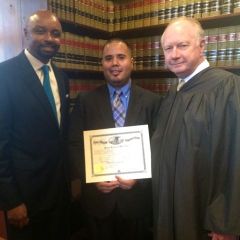Want more Dropbox security? Check out Boxcryptor
When it comes to sharing digital files -- whether documents, music, or almost anything else -- the ubiquitous Dropbox is sure to come to mind. But lawyers have to meet a high security standard, and "[a]lthough Dropbox encrypts the files on its server, Dropbox has had at least one security incident in the past, and Dropbox maintains a master key to the files," writes Chicago lawyer and tech expert Todd Flaming in the latest ISBA Standing Committee on Legal Technology newsletter.
What if you want more security for the files you're sharing on Dropbox? "[C]onsider using an add-on product called Boxcryptor," Flaming writes. "It creates a virtual drive on your computer that allows you to encrypt your files locally before uploading them to the cloud."
How? "Boxcryptor uses your own personal encryption key to encrypt every file before the file is saved into Dropbox and decrypt the file before you open it," Flaming writes "Thus, when the file is uploaded to Dropbox, it is already encrypted, and no one has the key."
Find out more in Flaming's article, where he also discusses the pros and cons of Boxcryptor and gives a remarkably short but clear explanation of cloud computing and how it works.

 As part of Member Appreciation Month, our vendor partner GEICO* has provided us with 20 prize packages to give away to members.
As part of Member Appreciation Month, our vendor partner GEICO* has provided us with 20 prize packages to give away to members.




